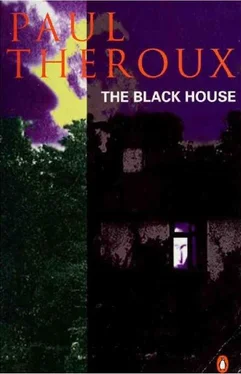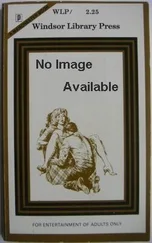Paul Theroux - The Black House
Здесь есть возможность читать онлайн «Paul Theroux - The Black House» весь текст электронной книги совершенно бесплатно (целиком полную версию без сокращений). В некоторых случаях можно слушать аудио, скачать через торрент в формате fb2 и присутствует краткое содержание. Год выпуска: 1996, Издательство: Penguin Books, Жанр: Современная проза, на английском языке. Описание произведения, (предисловие) а так же отзывы посетителей доступны на портале библиотеки ЛибКат.
- Название:The Black House
- Автор:
- Издательство:Penguin Books
- Жанр:
- Год:1996
- ISBN:нет данных
- Рейтинг книги:4 / 5. Голосов: 1
-
Избранное:Добавить в избранное
- Отзывы:
-
Ваша оценка:
- 80
- 1
- 2
- 3
- 4
- 5
The Black House: краткое содержание, описание и аннотация
Предлагаем к чтению аннотацию, описание, краткое содержание или предисловие (зависит от того, что написал сам автор книги «The Black House»). Если вы не нашли необходимую информацию о книге — напишите в комментариях, мы постараемся отыскать её.
The Black House — читать онлайн бесплатно полную книгу (весь текст) целиком
Ниже представлен текст книги, разбитый по страницам. Система сохранения места последней прочитанной страницы, позволяет с удобством читать онлайн бесплатно книгу «The Black House», без необходимости каждый раз заново искать на чём Вы остановились. Поставьте закладку, и сможете в любой момент перейти на страницу, на которой закончили чтение.
Интервал:
Закладка:
“You see what I mean?” said Munday. But his attempt at humor failed. Though his intentions were friendly his irony was always too peevish to seem like anything but aggression. The woman frowned and took a step back.
“Tell Doctor Munday what you just told us,” said Peter Motherwell.
Janet laughed. “Well, only that”—and here her husband began to snicker—“my Rachel’s nappy smells like mangoes.”
“Incredible,” said Peter Motherwell. He was beaming; the vicar’s eyes darted, making his smile one of dismay.
“It does," Janet protested. “When she makes a poo. There’s something about it.”
“I should say,” said Munday, “you’re a lot luckier than most young mothers. Your child must have phenomenal bowels.”
“Used to have a delicious mango tree in my garden,” said Mr. Awdry, approaching with the drinks. He gave Emma and Munday their glasses and said, “They were like this.” He measured with his hands. “Cook used to steal them.” “Cooks are very good at that sort of thing,” said Emma.
“Mine wore pink dancing pumps/’ said Awdry. “Except when he climbed the mango tree. They were my daughter’s. She threw them in the dustbin and the next thing we knew he was wearing them. Hate to think what he would have done if she’d thrown away her gym slip. Odd fish that cook.” “Obviously keen on dancing attendance,” said Munday.
“Yes,” said Awdry coOlly, but the others laughed.
“I’d love to be in a place where mangoes grew,” said Anne Motherwell. “So would I,” said her husband.
“Africa,” said Awdry. “Doctor Munday and I were both there.” He turned to Munday and said, “I always say it’s as if we’d gone to the same school.”
“But sent down in different years,” said Munday. “We enjoyed your talk at the church hall,” said Peter to Munday.
“Were you there?” asked Munday.
“All of us were,” said Peter, surprising Munday: why had he only seen those aged people? He wondered if his failing eyes had obstinately sought those failures to address. He didn’t like to be reminded of details he had missed, for he was certain there must be more.
“We were fascinated,” said Michael Strick, drawing close to his wife and adding, “Weren’t we? Janet and I have been reading some anthropology lately— The Naked Ape. So we were especially interested.”
“You should write something like that,” said Janet. “You could make a fortune.”
“Color supplement stuff,” said Munday, “written for the credulous semi-educated. And in any case I already have a fortune—my wife is quite wealthy. So you see the whole enterprise would be rather pointless.”
“Have you read Levi-Strauss?” asked Peter.
Munday turned to Awdry and said, “People I meet are always recommending books to me. Why is that? Very curious.” Now he spoke directly to Peter: “I haven’t opened an anthropology book since I was an undergraduate. It’s not necessary—not when one has a people to study. Books aren’t much use in the field—even Malinowski agreed with me on that. He was a character. ‘Alfred,’ he said to me once, ‘I can swear in seven languages.’ So, honestly, I haven’t read Levi-Strauss,” he went on, “but on the other hand I’m fairly sure Levi-Strauss has read me ”
“Caroline Summers said your lecture was the best one she’s heard,” said Janet.
“She’s smashing,” said Anne.
“She’s coming tonight,” said Awdry. “Late as usual.” He smiled “Dear Caroline.”
“She’s so funny,” said Anne. “She showed up at the Hunt Ball in a beautiful dress and gloves, very elegant! But she was wearing—wait for it!—orthopedic shoes. Did we laugh!”
“Caused quite a commotion,” said Awdry. “Some of the lady members went a bit glassy-eyed.”
“I didn’t know you were at the Hunt Ball,” said Janet, coldly.
“Peter had tickets,” said Anne. “It seemed a shame to waste them.”
“I think hunting is ridiculous and cruel,” said Janet.
“Now Janet,” said the vicar, “everyone has a right—”
“Princess Anne hunts,” said Peter.
“She’s a horse,” said Michael. “She doesn’t count.”
“All we did was dance,” said Anne to Munday. “Do you hunt, Doctor Munday?” asked Michael. “I don’t,” said Munday. “But if I did I’d look a bit silly admitting it after what your wife has just said.”
“Are you happy now?” said Michael to Janet. He was exasperated, but she showed no contrition.
“Of course I feel sorry for the poor fox,” said Anne.
Munday said, “Anyone who’s been to Africa knows how a fox feels.”
“But I love to watch the huntsmen gathering on a hill, all the horses stamping—the steam shooting out of their nostrils. And the other chaps scattering and blowing their horns, and the hounds sniffing everywhere. It’s a beautiful sight.” She looked at Janet. “I don’t care what anyone says.”
“Something very military about it,” said Awdry, “and at the same time very colorful. Takes a lot of courage really.”
“Courage?” Janet Strick snorted and crossed her arms. “It’s just torture, and it chills me to the bone. I stand in my kitchen and hear the horns and the hounds baying and I think of that helpless animal. They tear it to pieces. I can’t understand why people do it.”
“Thrill of the chase,” said Awdry. “The village people love it.”
“They love it,” said Janet disgustedly to Munday —but .they were all speaking to Munday, appealing, looking to him for approval, as if he were judging them. “The local people don’t know any better. They chase around on foot while the wealthy ones are on horseback..It’s a class thing in actual fact.”
“Hunting,” said Munday, and everyone listened, “is the perfect expression of the English tribal character. Formal murder, a lot of ceremony, a little blood, the classes together, the aristocrats in the saddle, the poorer on foot, the middle classes gaping from their gardens. It’s how all our best wars have been fought. You can be sure that when someone is dealt with that way the English mean business.”
“What Janet really objects to is the blooding,” said Michael.
“God,” said Janet, “they take the fox’s brush, dripping with blood, and they wipe it—”
“Yes, yes,” said Munday, who had just thought of a Bwamba custom which was an appropriate comparison, one of the puberty rites.
But Awdry interrupted. “They rarely sight a fox— that should give you some consolation, surely? Though on Christmas day,” he said, turning to Munday, “we saw one up by the Black House. We lost him behind the mill at Stoke Abbot.”
“I’m glad,” said Janet.
“Earth-stoppers didn’t do their job properly,” said Awdry.
“They be drinking,” said Peter Motherwell, trying to imitate a local accent; but it was not a good imitation, he was embarrassed, there was a guilty hesitance in his delivery—he blushed—and after he finished by saying, “Oy zeed ’em over yere at The Yew Tree,” there was a silence, the vicar expressed frank disapproval and several of the women glanced nervously in the direction of the door.
Breaking the silence, in what was clearly intended to help out her husband by diverting attention away from his galfe, Anne said, “I wonder what’s happened to Caroline.”
“And Jerry’s coming as well,” said Awdry. “I suggest we all have another drink while we wait. Help yourselves to the punch.”
“Maybe they’re coming together,” said Michael confidentially to Anne.
“I don’t believe all those things they say about Caroline,” Anne said. “Do you?”
“Yes,” said Michael, and smiled, but became serious again when he saw that the rest were listening.
Читать дальшеИнтервал:
Закладка:
Похожие книги на «The Black House»
Представляем Вашему вниманию похожие книги на «The Black House» списком для выбора. Мы отобрали схожую по названию и смыслу литературу в надежде предоставить читателям больше вариантов отыскать новые, интересные, ещё непрочитанные произведения.
Обсуждение, отзывы о книге «The Black House» и просто собственные мнения читателей. Оставьте ваши комментарии, напишите, что Вы думаете о произведении, его смысле или главных героях. Укажите что конкретно понравилось, а что нет, и почему Вы так считаете.












